Thinking about starting a blog but don’t know the difference between free and paid blogging platforms? You’ve come to the right place! In this post I explain everything you need to know about blogging on different platforms and tell you which one to use to maximize your earnings.

You’ve probably heard that WordPress is king when it comes to blogging platforms but you’ve also heard about other platforms like Wix and Tumblr that offer the same service, for free. So what’s the difference? Why should you pay money when you can use Wix to blog for free? Good point! And I completely agree with your thinking if you are planning to blog as a hobby.

But this post isn’t about blogging for fun, it’s about using the right platform to make money as a full time blogger. It’s important to know that while all blogging platforms have the ability to publish content, they are not equal when it comes to making money online. So if your goal is to make money as a blogger, take a minute to read this post. I’m about to explain exactly why you should avoid using a free platform and show you how you can start a blog for less than 3$ per month.
New to Blogging? Start Here!
Maybe you’ve been thinking about starting a blog for quite some time but never found the right moment to pull the trigger. Or maybe it’s all the tecchie stuff that you find scary and confusing? No need to fear WordPress or how to set up your blog – follow this step-by-step tutorial on how to start a blog!
Click here to learn how you can start a blog today for just $2.95/month (this price is only available through this link and includes a free domain name and WordPress installation).

What is a blogging platform?
Before we get started, let me quickly explain what a blogging platform is. A blogging platform is the foundation of your blog. It’s the software or service you use to publish your content online. Each platform has different, pre-coded templates that dictate the end appearance of your blog.
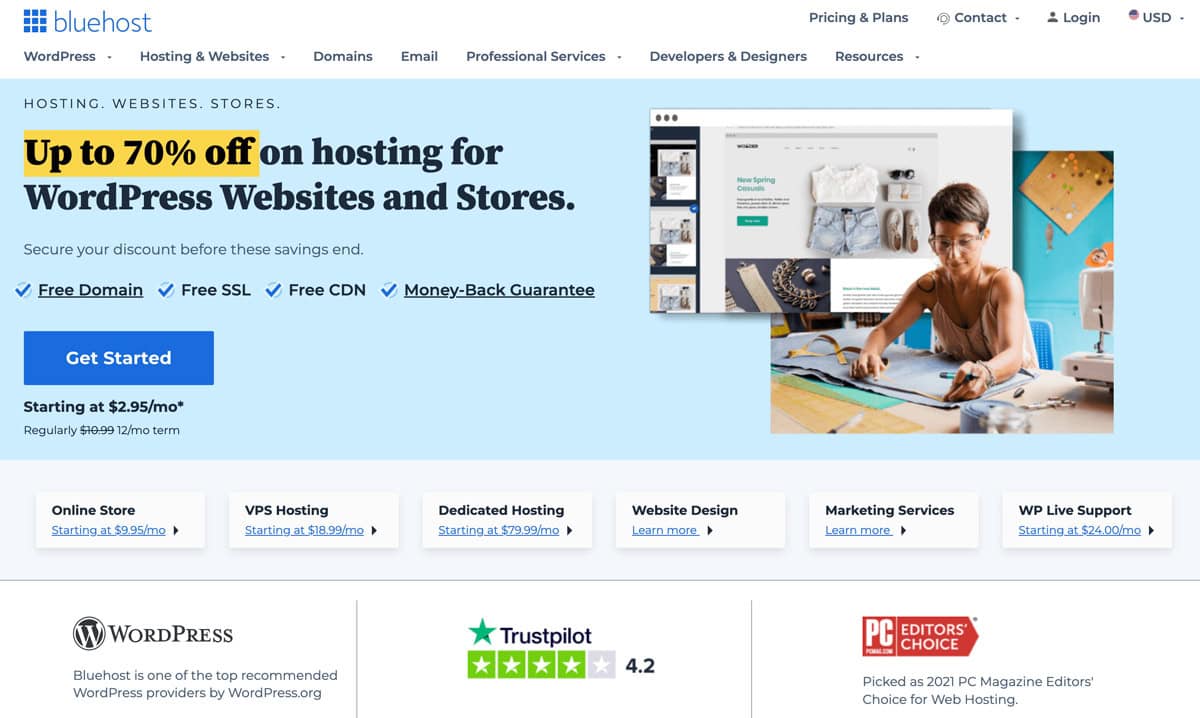
What is Web Hosting?
Web hosting is where your blog will be living. It’s a company that provides the services needed to view your blog online. For example, when a user views your blog by putting in your website address (domain name), their computer will connect to a server (which is where your blog will be hosted) so your webpages can be seen through the browser.
Which Comes First – Web Hosting Or Blogging Platform?
Well, you need hosting in order to access to your platform. So, in that sense, hosting comes first.
If you choose to go with a paid service like Bluehost, which offers hosting and a FREE domain name for as little as $2.95/month (this offer is only available to readers of my blog, the discount is automatically applied through the link), you will have access to various blogging platforms including the most popular one – WordPress.
You can access WordPress through your Cpanel (control panel) – and the set up is as simple as clicking the install button! If you choose to go with a free service like Squarespace, Wix or Tumblr, you will not have access to WordPress. Instead, you will have to use their own platform which is very limited.
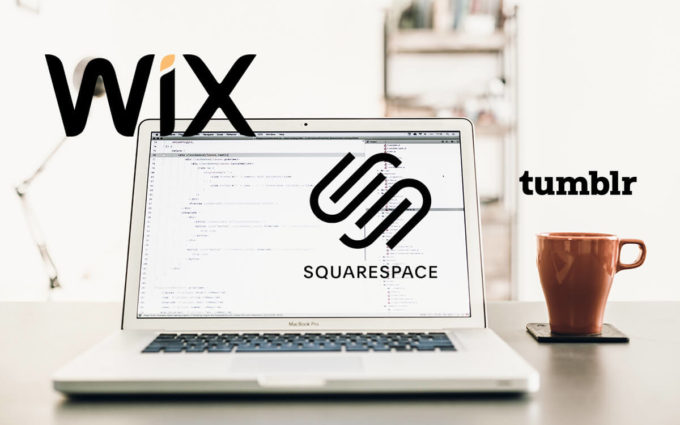
A Few More Things To Know About Free Blogging Platforms
Before you think I’m completely against free blogging platforms, let me say that’s not the case. I think they are great – as long as your goal isn’t to make money blogging.
I have friends who use Squarespace to promote their services (one is a health coach, and the other a photo journalist) and that’s perfectly fine since they are not looking to earn a living as a blogger. But for those of you who are, here are are some of the reasons why using a free blogging platform is a bad idea.
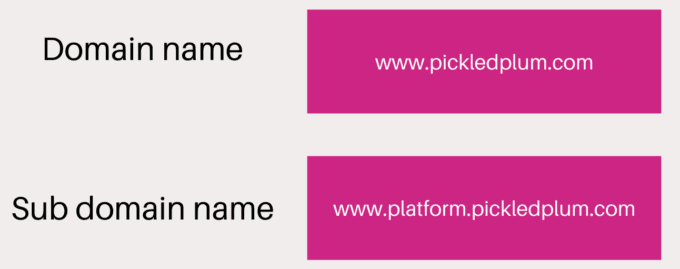
Subdomain Names Don’t Look Professional
A subdomain name is a domain name (the name of your blog) that is part of another domain name (the name of their product). If you are blogging for free, you will have to use a subdomain name. Free blogging platforms do offer primary domain names, but at a cost.
For example, when I first started blogging, I made the mistake of using a free platform, and this is what my web address looked like – www.pickledplum.blogspot.com. Not very professional looking, right? The point is that owning a primary domain name is crucial for proper branding, otherwise your blog likely won’t be taken seriously.

It’s Not Search Engine Friendly
And this is a BIG problem considering that most of your traffic will be coming from search engines. Just to give you an idea of how vital search engine traffic is, 79% of my traffic comes from there.
Without it, my blog can’t survive.
The problem lies in the fact that Google doesn’t view free blogs as authorities and has a tendency to tank them. This is why you rarely see them showing up on page 1, 2, even 3. This means significantly less traffic, which leads to less eyeballs on your content, which leads to less money in your pocket.
Bad for Social Media Credibility
Since free platforms are overrun by spammers your url might end up looking questionable in the eyes of the social media community. This means less shares and possibility earning a bad reputation.
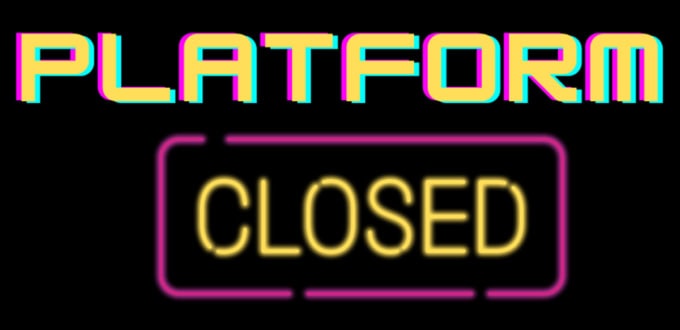
You Have Zero Control Over What Happens to Your Content
Another thing to keep in mind is that you don’t control your blog on a free platform.
The company controls 100% of your blog.
That’s pretty scary considering all the effort and time put into creating your blog’s content. For many of us, blogging is not just a way to make a living. It’s also a passion project that took months and years to build. The possibility of having something that precious taken away at a moment’s notice, forever, gives me chills.

Blogging for free also means the company reserves the right to read, access and ban your content if it feels you are in violation of certain rules or regulations – for the safety of its users and the public.
Why It’s Hard To Make Money On A Free Blogging Platform
Now it’s time to talk about why you will have a hard time making money on a free blogging platform. I’ve listed 5 big reasons why below:
1. You cannot run your own advertisements.
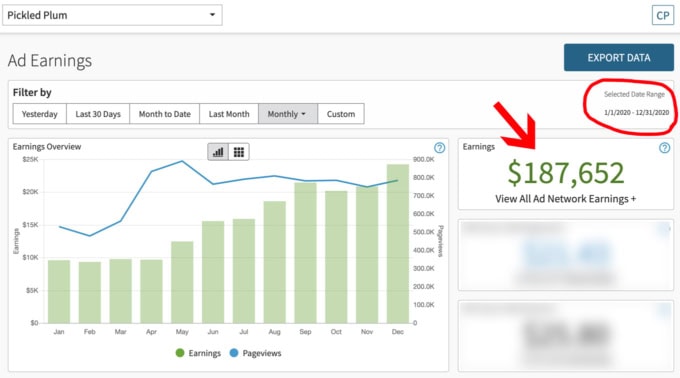
Since I make 75% of my income from banner advertising (I made over $187,652 from banners alone last year), it goes without saying that being unable to use them would be a detriment to my career as a food blogger.
But that’s what you get if you don’t use WordPress. Free blogging platforms don’t allow you to display ads, period. Some free blogging platforms will go as far as running their own ads on YOUR pages so they can make the money off of YOUR content!
The moral of the story is that nothing is ever truly free.
2. Your blog can take a long time to load.
Speed matters immensely if you want your blog to succeed financially.
It’s also critical in the eyes of search engines like Google – since SEO (search engine optimization) matters. Your blog will rank higher in searches if it’s faster, since search engines continuously try to deliver the best and most optimized content to their readers.

Speed can also be the difference between making a sale or losing one. That’s because 47% of users will leave a website if it takes longer than 3 seconds to load. Think of how many sales you could stand to lose if your blog takes 5-6 seconds to load. The main issue with free blogging platforms is that they put hundreds of free blogs on one server. And because the bandwidth is shared between so many sites, it will slow down loading time dramatically.

3. Limited amount of traffic for your blog.
It goes without saying that the more visitors you get to your blog -> the more money and sales you make.
But, in order to be able to get a lot of traffic, you need access to a lot of bandwidth which is something free platforms don’t offer. That’s because bandwidth costs money and free platform companies are only willing to give a small amount of it for free.
Why? Because their end-goal is to get you to eventually upgrade.
I think a lot of people who are on free platforms give up blogging after a while because they don’t see much growth. Traffic remains somewhat low and they get discouraged. But they don’t realize that it’s not the quality of their content that is causing this problem – but most likely the restrictions imposed by their hosting providers. Switching to a paid hosting service could be the difference between getting 5,000 visitors a month and getting 100,000 visitors!
4. Limited amount of storage for your data.
Another downside to sharing a server with hundreds of other blogs is that you will only be given a certain amount of storage for your data. Data is anything content related – videos, pictures, charts, you name it.
What happens when your disk storage is full (which happens pretty quickly)? You will have to upgrade.

And guess what? The cost for upgrading on what was initially a free service is 3-4 times higher than that of many paid services. For example, Wix may be free at first but will charge $14/month for their combo/personal use plan, which is the cheapest option.
The plan includes unlimited bandwidth, only 3GB of storage and 30 minutes of videos, and a free domain name.
Compare that to Bluehost, which only charges $2.95/month for unlimited bandwidth, 50GB of storage, and a free domain name (this low price is only available for readers of my blog – cheaper than buying straight from Bluehost).
5. Your blog won’t look professional or convincing.
The designs and functions available on free platforms can be quite restrictive and tend to look cheap. That alone will cost you sales since it’s harder to sell products when your blog or shop looks poorly made.
Also, the fact that it’s hosted on a free platform will naturally make people skeptical about the stuff you sell and recommend because, again, those platforms tend to be overrun with spammers.

The one important thing to take away from this post is that it’s crucial to think about the end goal when you are at the beginning stages of setting up your blog. Blogging is a long term commitment. So make sure you set yourself up for success from the start. You can prevent future problems before they happen. This will save you a lot of time and money.
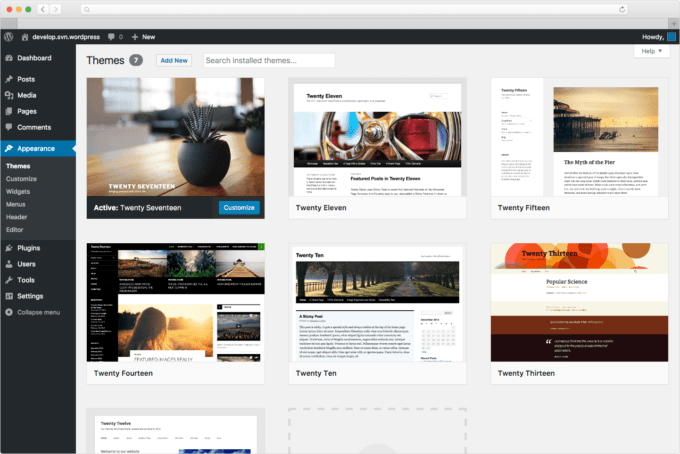
WordPress – The Best Blogging Platform For Serious Bloggers
Considering that most top blogs and over 30% of sites on the internet are powered by WordPress, I’d say the numbers speak for themselves.
The reason WordPress is so popular is because it’s extremely versatile, flexible and easy to use once you get the hang of it. (It took me all of two days to master.) With WordPress you have access to thousands of plugins which are mini programs that allow you to alter the look of your blog.
And you can add fun features to your blog as well. If you look at this post you can see that I have little social icons above the main image so people can easily share it with their friends (a simple step to implement in WP that results in more traffic for me!).
I’m also using plugins in my sidebar to display my most popular posts and another one to collect emails through the signup box. Plugins are extremely powerful add ons that can also help with managing the back end – as well as improving your blog’s speed.
WordPress is the best blogging platform to make money because:
- There are no restrictions – you can do anything you want, including adding advertising banners.
- The platform is easy to use, flexible and very powerful.
- You can design your blog exactly the way you pictured it in your mind.
- You can sell your own products (eBook, eCourse, etc.) and have an e-commerce section.
- You can choose which affiliate programs you would like to promote and promote them however you want (banners, posts, eCommerce)
- You can add beautiful landing pages like the one I created for my ecookbook.
The most common ways bloggers make money is through advertisements, affiliate marketing, sponsored posts, and selling their own products. You can do all of that on WordPress!
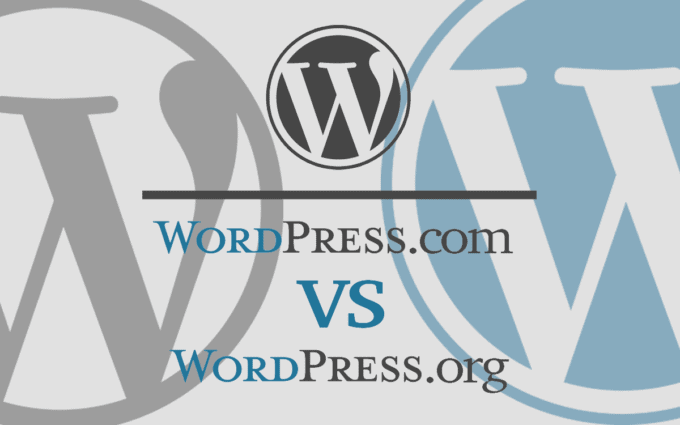
Differentiating between WordPress.org and WordPress.com
Now before you start blogging with WordPress you should know that WordPress.org and WordPress.com are not the same thing.
To keep it as simple as possible (because technology is complicated enough as it is), WordPress.com is a FREE hosting service like Tumblr and Blogger.
WordPress.org on the other hand is a software – a CMS (content management system) that needs a hosting provider and domain name.
So when I say that most top blogs use WordPress and that 30% of websites on the web are powered by WordPress, I’m talking about the software -> the .org one, not the free service.
The good news is most paid hosting sites such as Bluehost provide the WordPress software platform as part of their package. And the installation process is as simple as clicking the install button. To summarize this post, it’s much better to go with paid hosting that includes WordPress.org if you are serious about making money as a blogger.
It’s the only way to go.















I never ever tire of reading your posts, keep them coming!
I understand nothing, but reading you made me think that I could learn a few things. A professional is coming today to help me create a blog. Now I know: use Bluehost that will provide WP.org, and allow me to eventually make money. Thank you. I am now eager to learn more.
With havin so much content do you ever run into any issues of plagorism or copyright infringement? My website has a lot of exclusive content I’ve either written myself or outsourced but it appears a lot of it is popping it up all over the internet without my authorization. Do you know any methods to help protect against content from being ripped off? I’d definitely appreciate it.
Hi Sherron! Yes, there is plagiarism for sure but that’s just part of the job. I have filed DMCA complaints and if I find a blog or website that’s all stolen content, I contact their hosting provider and ask them to shut it down (this has work very well both time I’ve done it). I have learned to pick my battles and focus on my work otherwise it can get really frustrating and upsetting!
This was so thoughtful and informative. Detailed yet succinct. Thanks Caroline!
Thank you for such for the info packed article. I’m a retired teacher, 62, and need help naming my blog. I’m SO new at this and feel as if I’m fumbling my way through a maze. I was raised in the south, on a farm with my grandparents and have so many sweet stories to tell. My mother had me when she was only 16, so my grandparents were my parents. I’ve told my farm stories to my grandchildren since they were babies and I want to share them with others. I don’t even know if there’s an interest for such stories, but maybe I’ll find out. I need help with a name. I always start my stories out as; “Once upon a time when I was a little girl living on the farm with my Papa and Granny…” My grandchildren LOVE the stories and request each one by the events that they remember happening. Example; “Nana tell us about when you were living on the farm with your Papa and Granny and Santa Claus dropped your table set on the roof and broke the table’s leg.” 🙂
Hi Angela! If you have a passion for writing these stories then you should do it. One of the most important things about blogging is to be passionate about the subject you choose to blog about so you can do it day after day after day. Maybe you should call your blog “once upon a time (insert subject or city here)” 🙂 That would be a cute name! Good luck with your project!
Significant attention to little subtleties post about why everybody ought to try not to free blog stages.
At the point when I initially began contributing to a blog, I had hardly any familiarity with writing for a blog. So I likewise began a blog in wordpress free writing for a blog stage. Be that as it may, when I began getting traffic I was unable to adapt it. Burned through a great deal of time. Wish I had perused this post before I began a free blog.
This blog post single handedly explained the blogging process better then any other site so thank you! I’m looking to start my food blogging journey and make some income off of one of my favorite hobbies and would have been disappointed to find out that was not possible after signing up for a free blogging service.
Hi, ?Would a course on Art ocean waves realism and Art ocean abstraction be successful – by having 2 separate websites . One which contained my blog -with that blog being the enticement – to direct people to the course . (With subscription) . Seems like a lot of work ( and information to find for blog and course when niches are meant to be narrow? Thank you for you thoughts in advance . C.
Free stuff always gives you restrictions, so if you are looking to be more independent, then you have to go for paid services.
How can I monetize the blog wwbsite, and when I pay for the web hosting , do they automatically create for me a blog website??
This is a must read for new bloggers.
I have always said it that if you want to be serious with blogging, avoid free blogging platforms.
Even from the start, don’t start with free platform because it may affect the way people trust your website.
If a thing is worth doing, it’s worth doing well.
Thank you Caroline, i like how you made it easy to read.
Hi Caroline! Thank a Lot, Keep posting
Nice Blog Good Information
I used to read your blog on regular basis and found them very useful. I would like to thank you for sharing such an amazing blog with us.
Thank you so much Godrej!